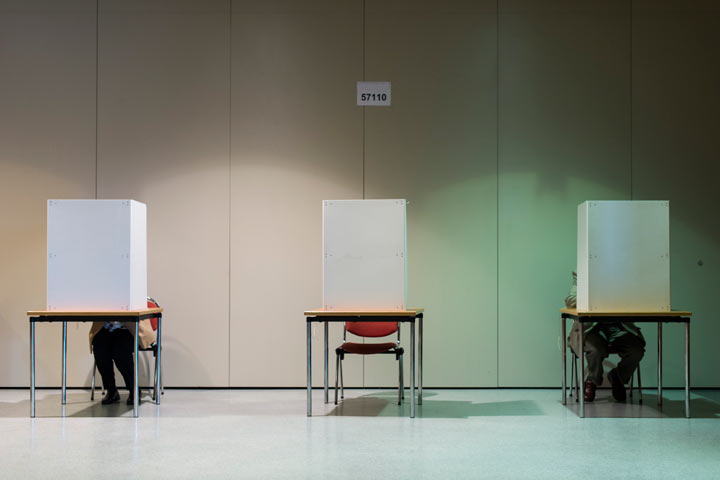When Rick Sauve visits prisoners these days, they have something new to discuss – the federal election.

They pester him with questions: What are the polls saying? Who do you think is going to win?
“It gives them something else to talk about,” says Sauve. “Because everyday’s like Groundhog Day. Everyday’s the same.
“When this comes around, they pay attention.”
Inmates in all provincial jails and federal prisons get a chance to vote Friday – always 10 days before an election – in special advance polling stations set up in the institutions.
This is the fifth federal election in which all inmates have been allowed to cast ballots.
Sauve, a former member of the Satan’s Choice motorcycle gang, was serving a life sentence for murder in Ontario when he filed a court challenge over the right to vote in 1992.
During his legal battle, the government changed the Elections Act to give the vote to provincial inmates serving sentences of less than two years. And, in 1992, a ruling by the Supreme Court cemented voting for all prisoners.
The high court ruled that “blanket disenfranchisement” was an inappropriate punishment that would not educate prisoners about the values of community and democracy.
All inmates were first eligible to vote in the 2004 federal election, a decade late for Sauve, who had been released on parole. The 63-year-old, who is still fighting to have his conviction overturned, works as a peer support counsellor for inmates, most of them lifers, in prisons in Ontario.

Get daily National news
READ MORE: NDP promises more powers for Elections Canada, repeal of Tories’ voting laws
He encourages them to vote, despite obstacles some of them face, such as trying to get ID with a proof of home address or being unable to read and write.
Figures from Elections Canada show voter turnout among prisoners has been steadily increasing, from 25 per cent of 36,000 inmates in 2004 to roughly 45 per cent of 38,000 prisoners in 2011. That’s still lower than the 61 per cent for the country as a whole in 2011.
“I’m surprised at the effort Elections Canada is going to to make sure that prisoners are not disenfranchised,” says Catherine Latimer, executive director of the John Howard Society.
Part of the problem for prisoners is the special voting process, she says.
Notices are posted in institutions when all elections are called – federal, provincial and municipal. Inmates must register to vote for candidates in their home ridings, rather than the ridings of their institutions.
When they get to the polling stations, it’s not as simple as checking a box.
Elections staff must dig through a long list of every riding and candidate in the country to find out who an inmate can vote for. Inmates then get a special ballot with a blank space.
READ MORE: Canadian brothers create website to show MPs’ bill-voting history
Elections Canada spokeswoman Leanne Nyirfa says a correctional liaison officer helps inmates register to vote and hands them lists of candidates in their riding a week before voting. Misspelling a candidate’s name doesn’t necessarily spoil a ballot. The Elections Act says if intent is clearly indicated on a special ballot, it can’t be rejected.
A deputy returning officer and poll clerk man each polling station, Nyirfa says. If they can’t be there, a corrections worker can be sworn in to act in their place. She doesn’t know if elections staff have ever refused to work in institutions.
Sauve says some prisoners are paying attention to this election campaign by tuning into news and debates on TVs in their cells. Others read newspapers.
They are obviously concerned about law-and-order issues, but also issues, such as health care, affecting their families back home, he says.
“Surprisingly, there’s a number that lean towards the Green party, because they’re concerned about the environment. A lot of people develop a social conscience when they’re in prison.”
Some men he’s talked to are leaning toward the NDP.
Occasionally, he says, he runs into a Conservative supporter.
Sauve plans to vote Liberal.








Comments